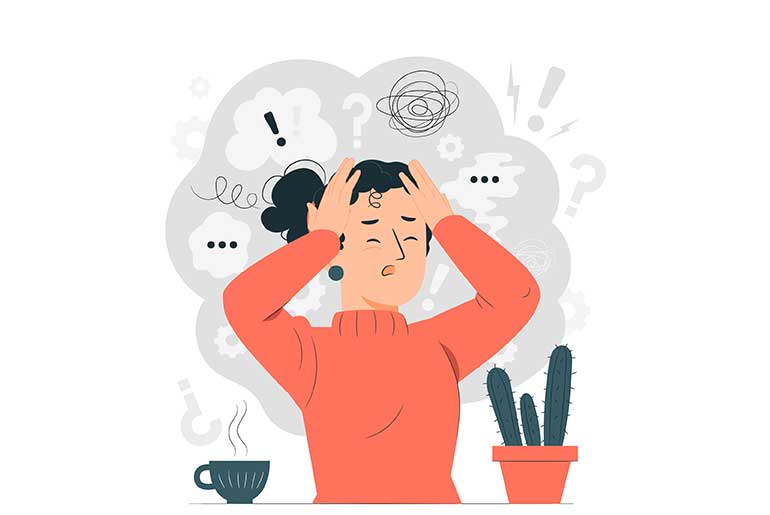The 7 Habits of Highly Effective People Redux : Overview
In this series I go back over my initial thoughts on the 7 Habits Of Highly Effective People and see 6 years on whether my thoughts have changed.
This post contains links to all my new thoughts on the 7 habits as well as links to my original views.

The Seven Habits of Highly Effective People (affiliate link) by Stephen R. Covey was originally written in 1989 and has sold over 15 million copies worldwide. Despite its age, it’s still relevant today if not more so in today’s ever-connected technological society. I’ve decided to take another look at the 7 Habits as they’ve become some of the most popular posts on my blog and, as 6 years have passed since I first read the book, it’s a good time for a refresher. If you’re interested in my previous take on the 7 Habits, you can check out a list of my previous posts.
One of the most profound learnings of my life is this: If you want to achieve your highest aspirations and overcome your greatest challenges identify and apply the principle or natural law that governs the results you seek Stephen R. Covey
Covey gives us the tools and techniques we need to achieve our goals. These are the 7 Habits of highly effective people.
The habits are split into 3 sections: “Internal” where we work on our relationship with ourselves, “External” where we work on our relationship with others, and “Renewal” where we work on improving and strengthening the techniques and ourselves.
The habits are designed to enable us to act in a principled, thoughtful way which is quite a change from the “Me, Me, Me, I want it now along with my 15 minutes of fame” generation that seems so prevalent today. The habits are also there to move us out of the blame and self-pity holes that we sometimes find ourselves in, steering us away from the “If he hadn’t…. if only I’d… if I had… I can’t possibly…” frame of mind that the current economic and workplace climate leave us feeling smothered by.
We can also use the habits to help us strike a balance between work and play that seems so difficult in our always connected culture. Covey feels that a lot of the self-help and self-improvement books that have been written since the 1940s and 1950s are more about projecting the correct aura of change and concern rather than actually affecting a deep-rooted change to a person’s true character.
Regular readers of this blog will know that I’m not a big fan of buzzwords or management speak and the founding principle of the 7 Habits is a shift in paradigms (ugh!) but once you get over that word, the process behind it makes a great deal of sense in that we have to make a definitive shift in our belief systems in order to accomplish the goals we have in mind.
Covey uses the above image to illustrate how people, even though they are looking at the same thing perceive things differently. Some people see a young lady, others an old crone. This then changes not only the way we perceive the world around us but how we interact with and react to, others and that we can use the habits to question and shift our objectivity. Covey defines habits as “The Intersection between knowledge, skill and desire”. Knowledge is “what and why”, skill is “how” and desire is “motivation”. All of these need to be aligned to achieve the habits.  Finally, we can’t achieve all of this alone, we need to rely on others to help us achieve our goals. Covey calls this “Interdependence” and this relationship we have with ourselves and other people underpin the whole of the 7 Habits. Over the next few weeks I’ll be taking a look at the individual Habits and what they mean in a modern and technological world.
Finally, we can’t achieve all of this alone, we need to rely on others to help us achieve our goals. Covey calls this “Interdependence” and this relationship we have with ourselves and other people underpin the whole of the 7 Habits. Over the next few weeks I’ll be taking a look at the individual Habits and what they mean in a modern and technological world.
Over To You
Do you use any of the principles from the 7 Habits? If so, which ones? Let us know in the comments.
Want to read the book yourself? buy the 7 Habits from Amazon today (affiliate link)
View The Other Posts In The Series
- 7 Habits : An Overview
- 7 Habits: Habit 1 – Be Proactive
- 7 Habits: Habit 2 – Start with the end in mind
- 7 Habits: Habit 3 – Put first things first
- 7 Habits: Habit 4 – Think Win/Win
- 7 Habits: Habit 5 – Seek first to understand then to be understood
- 7 Habits: Habit 6 – Synergise
- 7 Habits: Habit 7 – Sharpen The Saw : Principles of balanced Self-Renewal
Why Not Read The Updated Version?
- The 7 Habits of Highly Effective People Redux: Habit 1 – Be Proactive
- The 7 Habits of Highly Effective People Redux: Habit 2 – Begin with the end in mind
- The 7 Habits of Highly Effective People Redux: Habit 3 – Put First Things First
- The 7 Habits of Highly Effective People Redux: Habit 4 – Think Win/Win
- The 7 Habits of Highly Effective People Redux: Habit 5 – Seek first to understand then to be understood
- The 7 Habits of Highly Effective People Redux: Habit 6 – Synergize
- The 7 Habits of Highly Effective People Redux: Habit 7 – Sharpen The Saw






















Touchdown! That’s a really cool way of putting it!
The ability to think like that shows you’re an expert
I thought finding this would be so arduous but it’s a breeze!